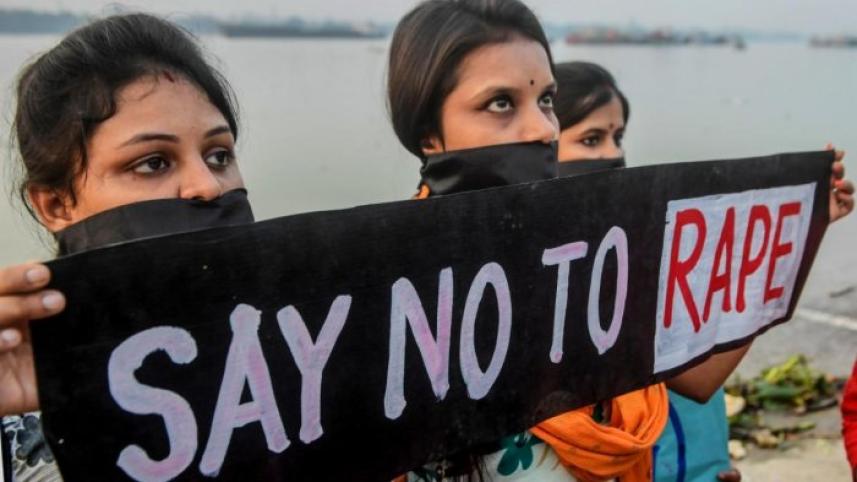Justice for Rape: Compensation as important as prosecution

While prosecution of rapists is essential, it is just as important to ensure redress for survivors of rape and other gender-based violence through compensation, said speakers at a webinar last night.
The discussion titled "No Justice without Reparation: Why Rape Survivors Must Have a Right to Compensation", was jointly organised by Bangladesh Legal Aids and Services Trust (BLAST), UN Women and The Daily Star.
Taqbir Huda, research specialist at BLAST, said UN in 1993 gave a declaration of elimination of violence against women in four stages -- preventing violence, protecting them, ensuring justice and redress through compensation.
"However, in Bangladesh, the issue of compensation is hardly discussed in our policies and laws," said Taqbir.
Under the Women and Children Repression Act 2020, the perpetrators are fined along with the punishment, but the amount goes to the state, Taqbir said.
The courts have the right to provide the amount to the survivors, but it is not mandatory, and survivors have been ensured compensation in only seven percent of the cases, he added.
Fowzul Azim, senior district judge, who is also the chief research officer of the Law Commission, Bangladesh, said although in laws protecting women from gender-based violence there arereparations for survivors, these have not been made effective yet.
"For example, under the Women and Children Repression Act 2020, a survivor can receive compensation against 10 offences, ranging from Tk 10,000 to Tk one lakh, fixed by the court. The amount should be extended," said Fowzul.
Besides, since there is no specific guideline on how the payment will be made, it becomes difficult for the judges to hand the money.
Fowzul also urged that in cases where the perpetrators do not have the ability to pay, the state must take the responsibility.
Dr Abul Hossain, project director of multi-sectoral programmes for violence against women, Ministry of Women and Children Affairs (MoWCA), said MoWCA, with Centre for Policy Dialogue and CARE Bangladesh, did a survey on gender-based violence (GBV) survivors to determine the cost of violence but unfortunately they found it difficult to measure the cost.
"Although the cost of physical violence can be measured, you cannot measure the lifetime mental trauma of survivors," he said.
Dr Hossain however said there are compensation packages for GBV survivors from MoWCA's Women and Children Repression Cell, from where they can avail initial support.
Rita Das Roy, capacity building manager of GIZ, focused on how incidents of rape or other forms of violence create lifelong trauma and hamper survivors' confidence, education, productivity, and ultimately isolate them.
It is the responsibility of the state to ensure their compensation, she said.
Shoko Ishikawa, of UN Women, said if women truly have the right to live free of violence, it is the obligation of every state to make sure that their rights are fully protected.
"These key principles and obligations are stressed in international laws as well as by the treaty bodies, such as the Committee Against Torture, Committee on The Elimination of All Forms of Discrimination Against Women (CEDAW), and Bangladesh is a party to all these treaties.
BLAST executive director, advocate Sara Hossain moderated the webinar.



 For all latest news, follow The Daily Star's Google News channel.
For all latest news, follow The Daily Star's Google News channel.
Comments